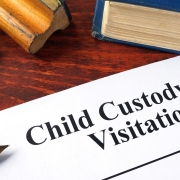Resolving divorce and family conflicts are more important now than ever during Covid-19. Thankfully, we live in an age of sophisticated technology. Zoom online mediation brings the mediation room to you!
I have provided virtual remote mediation for many years to accommodate clients living in different locations. And I have learned a lot about what makes for a successful Zoom mediation.
Online Divorce During Covid-19: Do’s and Don’ts
DO Plan Ahead
Mediating stressful conflict occurs best when you are comfortable, free of distractions, and have what you need to keep yourself calm. To that end, consider:
Location: Where can I have the most privacy? My bedroom? My office? My car? The basement?
Minimizing Distractions: Where will the kids be? What can they be doing outside of earshot? What about the dog?
Timing: How can I avoid needing to multi-task? Should I cook before or after? Can I clear my work calendar for two hours?
Comfort — Physically and Emotionally: What do I need to be comfortable? Can I fill up my water bottle in advance? Do I need something to fidget with? If I’m living with my spouse should we be together? Or separate rooms on different devices?
Preparation: Should I have paper and pen to take notes? Have I printed out forms that I need? Do I have a calculator available?
Technology: Am I familiar with Zoom (click here for Zoom tutorials)? Should I do a test call? Where do I have the strongest Wi-Fi connection? What device am I going to use? Do I need to start my video and audio settings?
;
When Divorcing Online, Avoid…
Driving: Believe it or not, zoom driving happens. It’s dangerous! And distracting. If your car is the most private spot make sure you’re parked.
Being too Informal: It can be easy to loosen boundaries in the comfort of your own home. Remember, mediation typically occurs in a formal conference room — aim to present yourself as you would in my office!
Drinking Alcohol: In the comfort of your home it might be tempting to have a drink while mediating — if you wouldn’t do it in my office, don’t do it at home during mediation. It will interfere with your decision-making and compromise the process.
Inflammatory/Intimidating Backgrounds: Do not fiddle with weapons, cut vegetables with a sharp knife, have a photo of your new significant other in the background, or expose the other party to things that will increase tension, stress, and obstacles to good-faith negotiation.
A Word about Kids and Online Divorce Mediation During Covid-19
Mediating from home is hard, particularly for parents. Remember, it is in your kids’ best interest they are not exposed to:
- Financial matters between parents
- Court and legal matters between parents
- Conflict, tension, and arguing between their parents
Make sure your kids are engaged in an activity out of ear-shot. If necessary, let me know that you need to take breaks to check-in with your kids..or if your kids walk in the room unexpectedly!
Balancing parenting, work, and a divorce from home is a tall-task. Part of my job is to make the process work for you — and that includes making adjustments so that online divorce and family mediation is as effective as in-person mediation!
What other recommendations do you have for how to mediate divorce during Covid-19 online? Please leave a comment!










